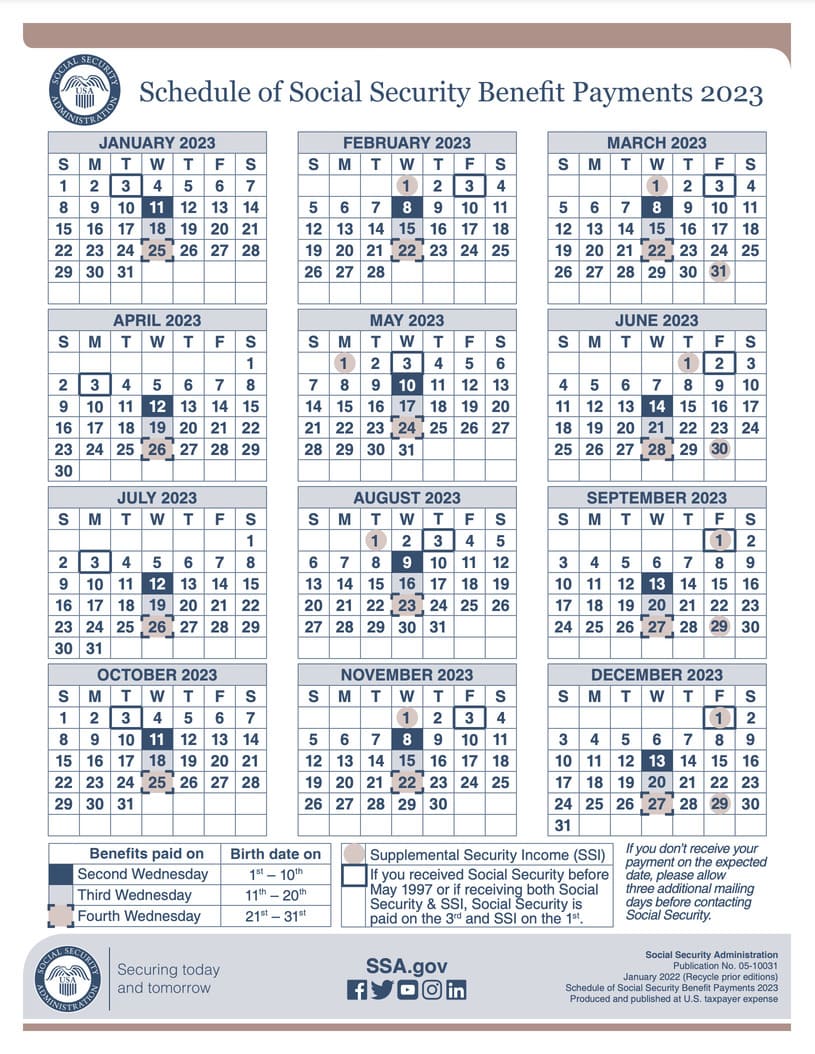Supplemental Security Income benefits are generally paid on the first day of each month. However, if the first falls on a weekend or holiday, benefits are paid on the last working day of the preceding month.
The Social Security Administration recently shared on Twitter a link to its Social Security payment schedule for 2023.
May 2023 Social Security benefits will arrive in bank accounts on Monday, May 1.
When will Social Security benefits appear in 2023?
If you began receiving Social Security benefits before May 1997, or if you receive both SS and SSI, you will receive Social Security benefits on the third day of each month, unless the third day falls on a weekend.
If your Social Security benefits did not begin before or after May 1997, the due date depends on your date of birth. If you were born between the first and tenth of each month, you will receive your Social Security deposit on the second Wednesday of each month. Those born between 11th and 20th will receive benefits on the third Wednesday, and those born between 21st and 31st will receive benefits on the fourth Wednesday.
For beneficiaries who receive paper checks, the Social Security Administration asks that you wait three postal days before checking the status of your payment if you do not receive it by the scheduled date.

What is Supplemental Security Income (SSI)?
Supplemental Security Income (SSI) is a federal program funded by U.S. Treasury general funds. The U.S. Social Security Administration (SSA) administers the program, but SSI is not paid for by Social Security taxes. SSI provides financial help to disabled adults and children who have limited income and resources.
Who is eligible for Supplemental Security Income (SSI)?
To be eligible for this benefit program, you must meet all of the following requirements:
- Be disabled, blind or 65 years old.
- They have limited income and resources.
- Be a US citizen or national or a legally permitted alien who meets additional requirements.
- Reside in one of the 50 states, the District of Columbia, or the Northern Mariana Islands, except for children of military parents assigned to permanent duty anywhere outside the United States or certain students temporarily abroad.
Other factors may affect your eligibility, including:
- Civil status.
- Income and resources of certain members of your household, such as a spouse or parent of a minor child.




